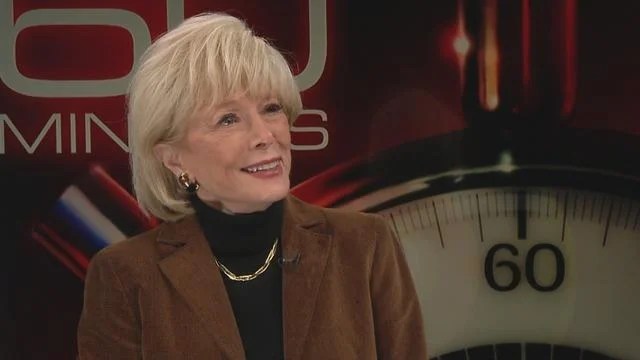For over five decades, 60 Minutes reporters have captivated audiences with their compelling storytelling, investigative journalism, and in-depth interviews. Known for their fearless approach to uncovering the truth, these journalists have become household names, with their work often leading to significant societal changes and a deeper understanding of pressing issues. As we explore the world of 60 Minutes reporters, we uncover the individuals behind the stories, their unique contributions to journalism, and the impact they have had on the media landscape.
The legacy of 60 Minutes is rooted in its commitment to journalistic integrity, often tackling complex subjects that other outlets may shy away from. The show has not only highlighted the stories of the powerful but has also given a voice to the marginalized, making it a crucial platform in the realm of broadcast journalism. Through this article, we will delve into the biographies of notable 60 Minutes reporters, their defining moments, and the skills that set them apart in the industry.
In an era where misinformation runs rampant, the work of 60 Minutes reporters remains vital. Their dedication to fact-checking, ethical reporting, and investigative practices ensures that viewers receive accurate and meaningful content. Join us as we navigate the fascinating world of 60 Minutes reporters, exploring their backgrounds, their motivations, and the stories that have shaped their careers.
Who Are the Most Notable 60 Minutes Reporters?
The legacy of 60 Minutes is interwoven with the lives of many distinguished journalists. Some of the most notable reporters include:
- Ed Bradley
- Diane Sawyer
- Lesley Stahl
- Anderson Cooper
- Scott Pelley
What is the Biography of Ed Bradley?
| Name | Ed Bradley |
|---|---|
| Birth Date | June 22, 1941 |
| Death Date | November 9, 2006 |
| Education | Cheyney University |
| Career Highlights | Emmy Award Winner, National Association of Black Journalists Hall of Fame |
Ed Bradley was a pioneering figure in broadcast journalism, known for his work on 60 Minutes from 1981 until his passing in 2006. His reporting covered a wide range of topics, from politics to social justice, and he was particularly recognized for his empathetic interviewing style. Bradley's contributions to journalism have left a lasting impact, inspiring future generations of reporters.
What Made Lesley Stahl a Famous 60 Minutes Reporter?
Lesley Stahl has been a prominent figure in journalism since the 1970s. Joining 60 Minutes in 1991, she quickly became known for her incisive interviews and ability to tackle controversial subjects. Stahl's experience spans across various platforms, including network news and political reporting, making her one of the most respected figures in the industry. Her work often reflects a commitment to uncovering the truth, regardless of the challenges she faces.
How Do 60 Minutes Reporters Prepare for Their Stories?
The preparation process for 60 Minutes reporters is rigorous and multifaceted. Here are some key steps they typically follow:
- Research: Reporters dive deep into the subject matter, gathering information from various sources.
- Interviews: They conduct interviews with key individuals, ensuring to ask probing questions to elicit meaningful responses.
- Fact-Checking: Accuracy is paramount; reporters meticulously verify facts before presenting them to the audience.
- Storyboarding: Before filming, they outline the narrative arc, ensuring a coherent and engaging story structure.
What Challenges Do 60 Minutes Reporters Face?
60 Minutes reporters often encounter numerous challenges in their line of work, including:
- Time Constraints: Tight deadlines can pressure reporters to deliver comprehensive stories quickly.
- Access to Sources: Gaining access to key figures or sensitive information can be challenging, requiring persistence and negotiation skills.
- Public Scrutiny: With fame comes scrutiny; reporters must navigate public opinion and criticism while maintaining journalistic integrity.
How Have 60 Minutes Reporters Influenced Public Opinion?
The influence of 60 Minutes reporters on public opinion is significant. Through their investigative pieces and compelling storytelling, they have shed light on critical issues, prompting discussions and sometimes leading to policy changes. Their ability to humanize complex topics allows viewers to connect emotionally, fostering a deeper understanding of the subjects at hand.
What is the Future of 60 Minutes Reporters?
As the media landscape continues to evolve, the future of 60 Minutes reporters will likely involve adapting to new technologies and platforms. Here are a few trends that may shape their work:
- Digital Storytelling: Embracing multimedia elements such as podcasts, social media, and interactive graphics to engage audiences.
- Focus on Investigative Journalism: With increasing misinformation, there will be a heightened emphasis on investigative reporting to uncover the truth.
- Global Perspectives: As the world becomes more interconnected, there will be a push for stories that highlight international issues and perspectives.
In conclusion, 60 Minutes reporters have played an indispensable role in shaping journalism and informing the public. Their dedication to uncovering the truth, combined with their storytelling prowess, ensures that they remain a vital force in the media landscape for years to come. The legacy of these reporters will continue to inspire future generations, reminding us of the importance of integrity and authenticity in journalism.



